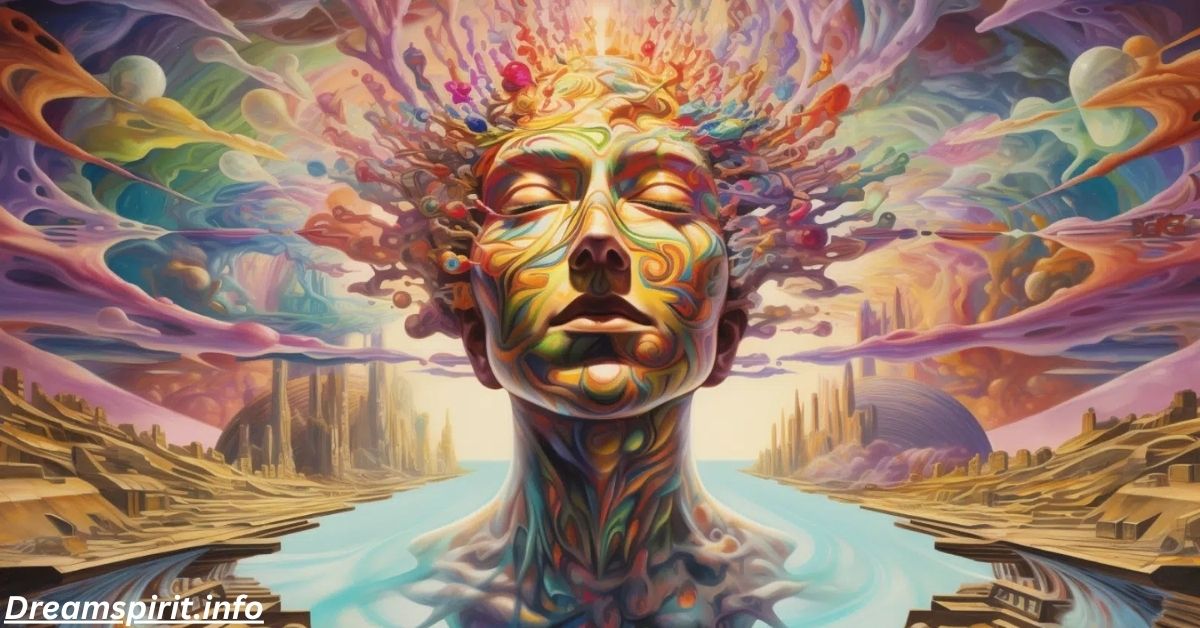Many people fear losing control. But for some, ego death becomes the doorway to freedom. It feels like the end of your identity. But it can also lead to spiritual awakening and peace.
In this article, we’ll explore what really happens to your mind during ego death. We’ll look at science, spirituality, psychology, and healing.
What Is Ego?
Ego is your sense of who you are. It’s your name, job, roles, and beliefs. Sigmund Freud called it part of the mind that balances desires and morals. He described the mind as having three parts: id, ego, and superego.
The id wants instant pleasure. The superego wants to follow the rules. The ego keeps them balanced. Today, science also uses the term default mode network. This is a part of the brain that lights up when you think about yourself.
What Is Ego Death?

Ego death means losing that sense of “I.” You no longer feel separate from the world. You may feel like your identity is gone. Some call it identity loss or subjective identity collapse.
This can happen during a psychedelic experience, deep meditation, or intense spiritual practice. Others reach it during a trauma or near-death experience. Many describe it as oneness with the universe or unity consciousness.
What Causes Ego Death?
Ego death can be triggered by many things. A few common causes include:
| Cause | How it Leads to Ego Death |
| Psychedelics | Substances like LSD, DMT, ketamine, and psilocybin (magic mushrooms) alter perception. They reduce the default mode network, breaking down the sense of self. |
| Meditation & Mindfulness | Long-term spiritual practice in Buddhism or Sufism can dissolve the ego. Techniques like satori and fana are designed to do this. |
| Near-Death Experiences | A brush with death can trigger altered states of consciousness and deep self-awareness. |
| Life Crises | Loss, trauma, or existential shock can unravel the ego. |
How Ego Death Works
During ego death, the brain’s default mode network shuts down. This happens during intense meditation, hallucinogens, or trauma.
The usual sense of being “you” fades. Your thoughts change. You may see sacred geometry, feel time stop, or sense oneness with God.
3 Stages of ED

Ego death often moves in three parts. Each feels different. Let’s break them down:
1. Ego Dissolution: You feel disconnected from your thoughts. Time, space, and identity blur. You may see dreamlike imagery or feel strange sensations.
2. Ego Loss: The “you” you knew disappears. There is no separation between self and world. Some feel fear. Others feel Nirvana or enlightenment.
3. Return to Everyday Life: Slowly, your ego reforms. But something has changed. You carry new clarity, purpose, or confusion. This can feel like transformation.
What Does Ego Death Feel Like?

Each person describes it differently. Some feel love, peace, and expansion. Others feel panic or fear. You may feel as if you’re dissolving. Or floating.
You may feel like nothing matters. Or like everything is connected. It can be beautiful. It can be terrifying.
Signs and Symptoms of ED
When it happens, you might:
- Feel disconnected from your name, body, or past
- Lose track of time
- Experience deep emotions or total numbness
- Feel you are part of everything
- See visions or altered reality
These can be part of life-changing experiences. But they can also be confusing. Especially if you’re not ready.
Experts on Ego Death
Many thinkers and teachers have explored ego death. Timothy Leary wrote The Psychedelic Experience, based on the Tibetan Book of the Dead. He believed psychedelic therapy could lead to spiritual growth.
Stanislav Grof used LSD in psychotherapy and later developed Holotropic Breathwork. Carl Jung saw it as part of finding the true self. Alan Watts, Ram Dass, and Eckhart Tolle spoke about it often.
In pop culture, RuPaul, Esther Perel, Robin Arzón, and Pharrell Williams have shared messages about self-awareness and mental well-being. Even scientists like Neil deGrasse Tyson and Jane Goodall have touched on consciousness and human connection.
The Link Between ED and the Subconscious Mind
Ego death doesn’t just affect your conscious thoughts. It opens a door to the subconscious, where hidden fears, beliefs, and memories live. When the ego dissolves, these buried parts often rise to the surface. You may recall long-forgotten emotions or experience strange dreams and symbols.
This is your mind rebalancing without its usual filters. Some report meeting inner “guides” or reliving moments from childhood. These experiences are not random they’re your subconscious revealing itself as your conscious mind steps aside.
Different Cultures and Belief Systems
The idea of ego death appears across the world. In Buddhism, it’s called satori—a sudden moment of awakening. In Sufi mysticism, it’s known as fana, or the dissolving of the self into God. Mystic Christianity speaks of the dark night of the soul, a painful spiritual trial that leads to oneness with God.
Even in Indigenous cultures using ayahuasca or psilocybin, ego death is seen as a sacred rite of passage. Though the names differ, the core idea is the same—true freedom begins when the ego ends.
The Risk of Mistaking Trauma
Not all ego collapse is spiritual. Sometimes, what feels like ego death is actually emotional trauma or psychosis. Losing your sense of self during panic, isolation, or illness can be destabilizing—not enlightening. True ego death feels expansive, not destructive.
That’s why mental health support is crucial, especially during psychedelic therapy or spiritual crises. If you’re unsure, ask: Did the experience bring clarity and peace? Or confusion and fear? The answer matters more than the label.
How to Integrate Ego Death into Daily Life
After ego death, life feels different. But how do you live with it?
Start with mindfulness. Practice being present. Use meditation or grounding tools to stay balanced.
Let go of labels, stories, and false beliefs. Accept what you felt. Don’t rush to be the “old you.” Ego death is a process.
Serve others. Many people feel more compassion afterward. Help others. Share your lessons. Stay open.
FAQ’s
Is ED permanent?
No. The ego usually returns. But your view of life may be changed forever.
Can ED treat anxiety or depression?
In some cases, yes. In controlled psychedelic therapy, ego death can support mental health and healing.
Is ego death safe?
It depends. With proper guidance, it can be life-changing. But it can also trigger psychosis or distress without support.
Is it only possible with drugs?
No. Many achieve it through spiritual practices alone.
Is ED the same as spiritual awakening?
They often overlap. But spiritual awakening is a broader, ongoing journey.
Final Thoughts
Ego death is not about losing yourself. It’s about seeing what lies beyond your ego. It breaks your identity but reveals your truth.
Whether reached through ayahuasca, trauma, or mysticism, it’s a step into the unknown. A step toward spiritual awakening. Toward transcendence.
You don’t need to chase ego death. Just be open. Be curious. And if it finds you, know this—it’s not the end. It’s the start of something deeper.

As a lifelong seeker and spiritual writer, I’m Victoria Lane. I create heart-centered content to illuminate your path and awaken the truth already within you.

